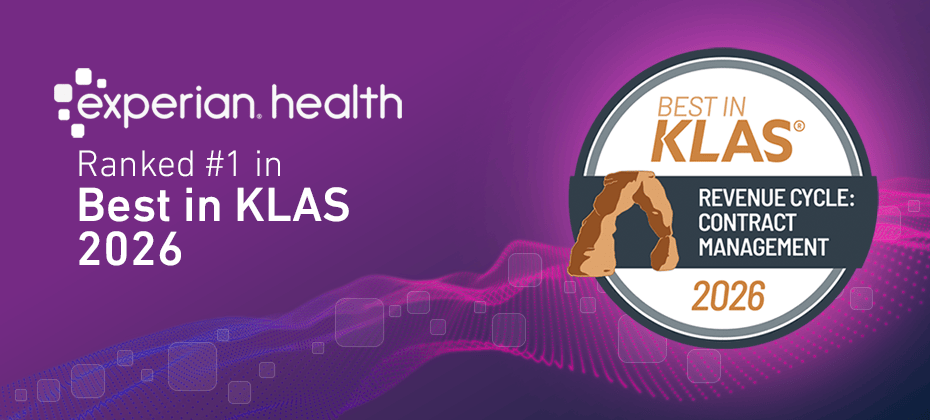
Maintaining a healthy cash flow is the only way to deliver quality patient care, invest in state-of-the-art technologies and keep daily operations running smoothly. But that’s easier said than done: data errors, delayed payments, denials and staffing disruptions leave providers vulnerable to escalating admin costs and revenue leakage, with little left over to reinvest. By adopting a few key revenue cycle management (RCM) strategies, providers can sidestep these challenges and bring in more dollars. This guide summarizes five revenue cycle management best practices healthcare leaders should follow to optimize RCM workflows and promote financial stability.
Key challenges in revenue cycle management
Common issues that can get in the way of a healthy revenue flow include:
- Inaccurate patient data leading to coding errors, claim denials and billing delays
- Increasing numbers of denied claims generate costly rework and wasted time
- Payer compliance issues that are constantly changing and time-consuming to monitor
- Growing numbers of self-pay patients struggling to pay their bills
- Labor shortages increase pressure on staff and leave the door open to sub-par performance
- Inadequate data insights hindering management’s ability to spot opportunities for improvement
- Rapid technological changes leave providers on the back foot if they fail to keep pace with new developments.
The dream scenario would be to avoid all these potential obstacles before they do too much damage. In reality, providers will need to choose a few priority areas to troubleshoot.
Check out this guide to choosing the right key performance indicators for your revenue cycle dashboard to ensure the effective implementation of RCM strategies.
Revenue cycle management best practices
What does a successful revenue cycle look like? For busy RCM leaders, deciding what to tackle first can be overwhelming. While there’s no one-size-fits-all RCM strategy, there are a few key issues that all organizations must pay attention to. Here are five areas of best practice to factor in:
1. Streamline patient registration and insurance verification
Accurate patient data is the number one factor in building a robust revenue cycle. It doesn’t matter how efficient claims management and collections processes are if the data they use is flawed.Automated registration and verification toolsreduce the chances of manual errors entering the system to ensure correct billing, reduce denials, and speed up reimbursement.
One pitfall to watch out for is the fact that some digital tools still require staff to check multiple payer websites and data repositories to verify insurance eligibility. Experian Health’s latest patient access solution, Patient Access Curator, avoids this by using AI-driven technology to collect and verify patient information with a single click.
2. Automate claims submission and management
According to Experian Health’s State of Claims 2022 report, 62% of providers feel they lack the necessary data and analytics to identify issues in claims submission processes. A similar number believe the absence of automation prevents improvement. The CAQH Index backs this up, with the latest estimates suggesting the healthcare industry could save $18.3 billion by switching to electronic transactions.
As with patient intake, there’s an opportunity to leverage automation in claims management to prevent errors and delays so the organization gets paid faster. Experian Health’sclaims management products—ranked #1 in 2024 surveys by bothKLASandBlack Book—automate each step of the claims workflow so providers can submit clean claims quickly and cut the need for time-consuming manual work.
3. Optimize denials management and appeals with AI
Despite best efforts, claims denials remain a burden for many RCM teams. However, proactively understanding and addressing the root causes can help keep denials under control. There’s an opportunity to go a step beyond automation and see how artificial intelligence and machine learning can help combat the denials challenge.
AI AdvantageTM evaluates individual claims in real time to flag those with a high likelihood of denials based on historical payment data, so staff can intervene quickly before submission. Denials are then triaged using advanced algorithms so staff can focus on reworking denials with the greatest chance of payment, rather than wasting time on those that are never going to be approved.
Eric Eckhart, Director of Patient Financial Services at Community Medical Centers in California, says that since implementing AI Advantage, “Now I have almost a whole week a month of staff time back, and I can put that on other things. I can pull that back from outsourcing to other follow-up vendors and bring that in-house and save money. The savings have snowballed. That’s really been the biggest financial impact.”
Watch the webinar: Hear how Community Medical Centers and Schneck Medical Center are using AI AdvantageTM to prevent and triage denials.
4. Choose the right technology and tools for enhanced RCM
The three previous revenue cycle management best practices emphasize the importance of selecting the right tools for the task. Two things to look out for when adopting a new RCM product are how well it integrates with existing tools and systems, and whether it offers meaningful insights to drive ongoing improvements.
Experian Health’s integrated RCM solutions are designed to fit together seamlessly, often allowing staff to view information from multiple workflows within the same dashboard. By bringing together metrics such as financial performance, billing efficiency and collections rates into one place, these tools help staff make strategic decisions about resource allocation and operational improvements.
5. Keep up with regulatory compliance
Finally, ensuring compliance with regulatory requirements cannot be overlooked. The reputational and financial risks are too great. Regular training for staff on compliance issues and maintaining up-to-date knowledge of government and payer requirements will minimize the risk of penalties. Choosing RCM tools that automatically check for relevant updates can help providers stay current.
Price transparency is a topical example. While the Hospital Price Transparency Rule is designed to help healthcare consumers understand healthcare costs and make more informed decisions about their care, implementation has proven tricky for providers. With the right technology and third-party support, it’s much easier to stay compliant.
Watch the webinar: See how Experian Health and Cleverley & Associates have partnered to help healthcare organizations navigate price transparency in 2024.
Looking for more insights into revenue cycle management best practices? Contact Experian Health today to discover how our RCM solutions can transform your revenue cycle and increase cash flow year over year.


